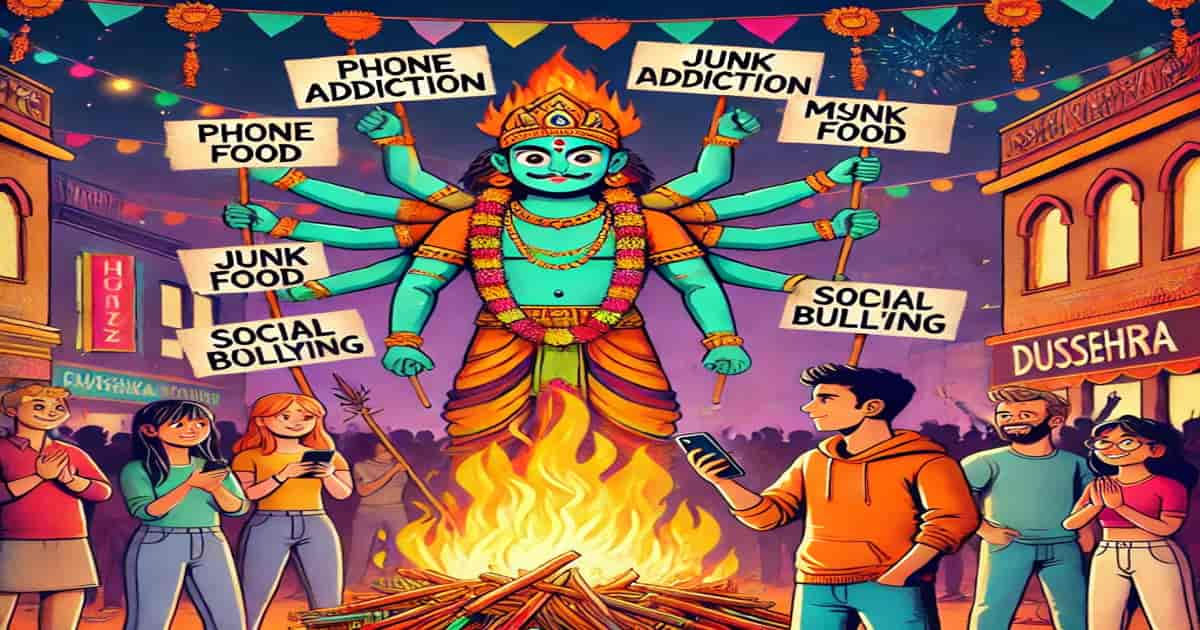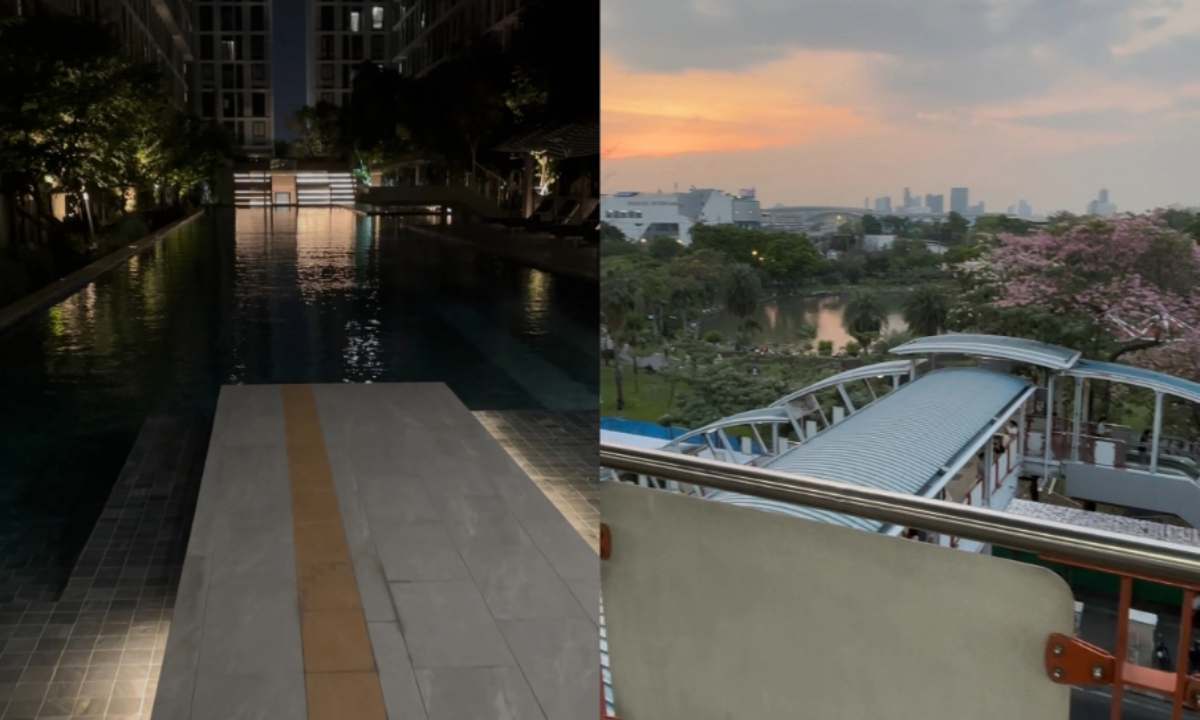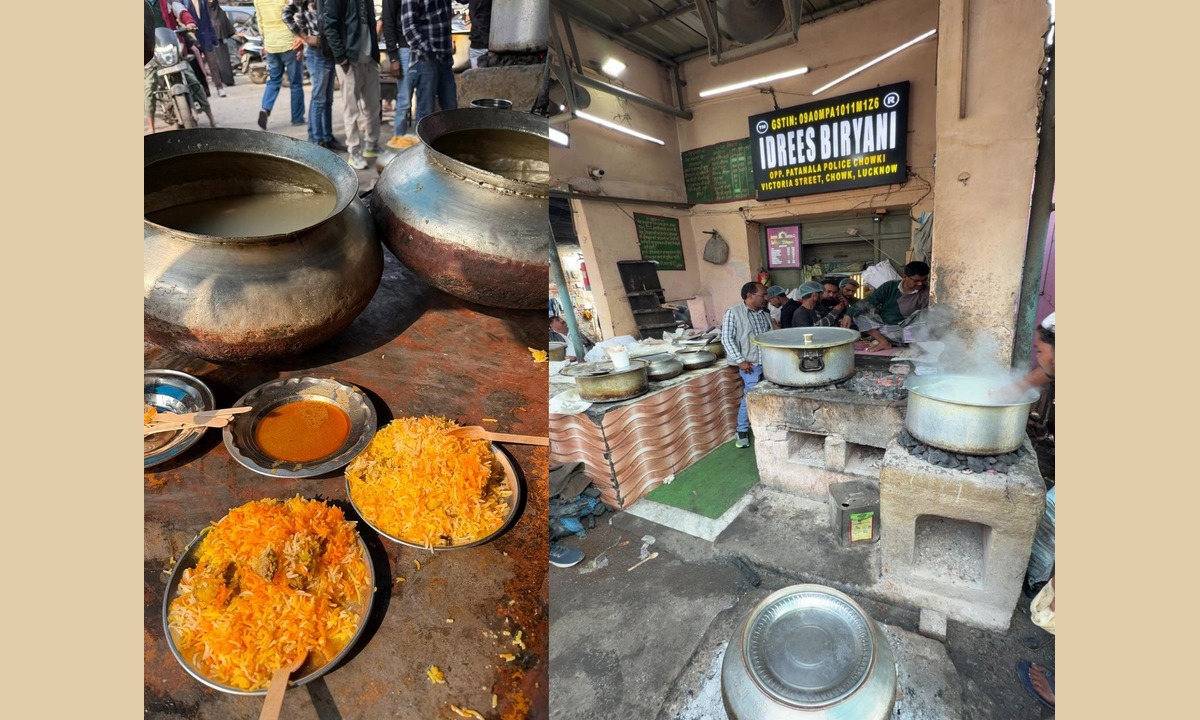
As the grand festival of Dussehra lights up the skies today, the country celebrates the age-old tradition of good triumphing over evil. The burning of Ravana’s effigies symbolises the victory of Lord Rama over the demon king, reminding us of the importance of conquering the evils in life. However, this year, the festivities have taken on a more introspective tone, particularly for the younger generation. Gen Z is being encouraged not only to celebrate Dussehra but also to use the festival as an opportunity for self-reflection and personal growth. The message is clear: beyond defeating external demons, it's time to confront the "inner Ravanas"—the bad habits that hinder progress and happiness.
Dussehra: A Festival of Symbolic Triumph
Dussehra, also known as Vijayadashami, is one of the most significant festivals in India. It marks the culmination of Navratri and is celebrated with grandeur across the country. The festival commemorates Lord Rama’s victory over Ravana, symbolizing the triumph of good over evil, justice over injustice, and light over darkness. Effigies of Ravana, often accompanied by his brothers Meghnath and Kumbhakarna, are set aflame, symbolising the destruction of evil forces.
But Dussehra is more than just a celebration of mythological victory. Its deeper significance lies in its message of self-improvement. It calls for introspection and the eradication of personal vices, much like Lord Rama’s victory represents the overcoming of human flaws. Today, while the effigies of Ravana burn in vibrant processions, the festival is evolving to include a more personal message for the younger generation.
The Call for Gen Z: Burning Modern-Day Bad Habits
In a world dominated by technology, fast-paced living, and rising mental health challenges, young people today face unique struggles. Gen Z, born in the digital age, is constantly bombarded with information, expectations, and pressures that can make personal growth challenging. As they navigate an increasingly complex world, the bad habits that develop often hinder their ability to thrive. This Dussehra, spiritual leaders, educators, and community influencers are encouraging Gen Z to reflect on their lives and make a commitment to burning their own "inner Ravanas"—modern-day bad habits that stand in the way of success and well-being.
Burning the 10 Inner Ravanas: Modern Habits Holding Gen Z Back
Just as Ravana’s ten heads symbolized different evils, this Dussehra asks Gen Z to confront and burn ten harmful habits that often lead to stress, dissatisfaction, and a lack of personal growth. Here’s a closer look at these ten habits and why they deserve to be left behind in the flames:
1. Procrastination: One of the most common hurdles for young people today is procrastination. Delaying important tasks, whether it’s schoolwork, career goals, or even self-care, leads to a vicious cycle of stress and missed opportunities. Burning procrastination this Dussehra means committing to taking action now, rather than waiting for a “better time.”
2. Screen Addiction: In the digital age, screen addiction has become a widespread problem. Gen Z spends hours each day on social media, games, and streaming platforms. While technology is a tool for growth, excessive use can isolate individuals, disrupt sleep, and increase anxiety. This Dussehra, burning the habit of screen addiction can help young people regain control of their time and focus on real-life connections and experiences.
3. Negative Self-Talk: In a world that often emphasises perfection, many in Gen Z struggle with self-doubt and negative self-talk. This habit of criticising oneself can lead to low self-esteem and a lack of motivation. Burning negative self-talk means learning to cultivate a more positive and encouraging inner dialogue.
4. Over-reliance on Technology: While technology offers convenience and solutions, over-reliance on it can make individuals less capable of solving real-world problems independently. Gen Z is encouraged to burn the habit of leaning too heavily on technology and instead nurture problem-solving and critical-thinking skills that are vital for success in life.
5. Inconsistent Sleep Patterns: Irregular sleep schedules have become the norm for many young people. Whether due to late-night studying, binge-watching, or social media scrolling, a lack of quality sleep can have serious health consequences. Burning the habit of inconsistent sleep patterns can improve mental clarity, physical health, and overall well-being.
6. Unhealthy Eating Habits: With fast food and junk food easily accessible, unhealthy eating habits have become a growing concern for Gen Z. Poor nutrition not only affects physical health but also contributes to mental sluggishness and mood swings. This Dussehra, burning unhealthy eating habits means committing to a balanced diet that fuels the body and mind.
7. Lack of Physical Activity: In a world where entertainment is often just a click away, physical activity is often overlooked. Gen Z is being reminded that exercise is not just about physical fitness but is crucial for mental health and emotional well-being. Burning the habit of inactivity can lead to a more energetic, focused, and happier life.
8. Impatience: In an age of instant gratification, impatience has become a defining characteristic of the younger generation. Whether it’s in relationships, career growth, or personal development, the desire for quick results can lead to frustration and burnout. Burning impatience this Dussehra means embracing patience and perseverance as key elements of long-term success.
9. Superficial Relationships: The rise of social media has transformed how people connect, but it has also led to an increase in shallow, superficial relationships. Gen Z is encouraged to focus on building deeper, more meaningful connections that go beyond the digital world. Burning superficial relationships means investing in friendships and relationships that provide real emotional support and fulfillment.
10. Ignoring Mental Health: Despite growing awareness about mental health, many young people still struggle to seek help or address their mental health issues openly. This Dussehra, burning the habit of ignoring mental health means acknowledging its importance and seeking support when needed, whether through therapy, mindfulness practices, or open conversations.
Rhe Significance of Self-Reflection
While the burning of Ravana’s effigies is a powerful visual spectacle, the true essence of Dussehra lies in its message of self-improvement and renewal. For Gen Z, this festival is an opportunity to reflect on their habits, choices, and priorities. By focusing on self-growth, they can use the symbolic act of burning Ravana’s effigy as a reminder to confront their own challenges and strive for personal victory.
This new take on Dussehra is not about overwhelming lifestyle changes. It’s about small, deliberate steps toward improvement. Dr. Suman Rathi, a psychologist, explains, “We are encouraging young people to identify just one or two habits that they can work on. The idea is not to completely overhaul their lives overnight but to make consistent progress.”
Awadh360 plus
As the effigies burn bright today, lighting up cities and villages across India, Dussehra 2024 is not just a celebration of mythological triumph. It is also a call for personal growth, especially for Gen Z. Burning bad habits and embracing healthier practices in life can help young people achieve their goals, improve their well-being, and create a brighter future.
This Dussehra, as Ravana’s effigy crumbles to ash, Gen Z is invited to reflect on what they can leave behind. The festival serves as a powerful reminder that victory is not just about defeating external forces but also about conquering the obstacles within. With this renewed focus on personal development, the celebrations this year carry a message that is both timeless and deeply relevant in today’s fast-paced world.
Popular Categories
Read More Articles
Travel and Tourism
Travel to Thailand gets costlier: International passenger service fee to jump 53% from June by Awadh 360° Desk February 22, 2026Travel and Tourism
Thailand Extends Visa-Free Stay for Indians to 60 Days, Allows 30-Day Extension by Awadh 360° Desk February 19, 2026Travel and Tourism
Lucknow or Zaike: A City Remembered Through Taste by Mohammed Syed Zaid February 11, 2026Business
What's Up With WhatsApp? by Prateek Shukla February 9, 2026



